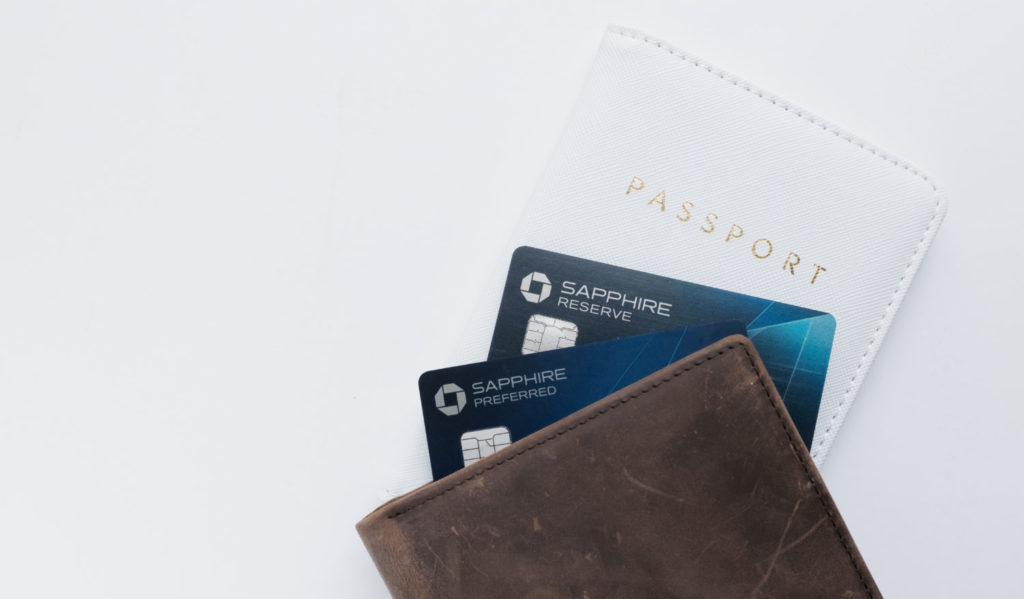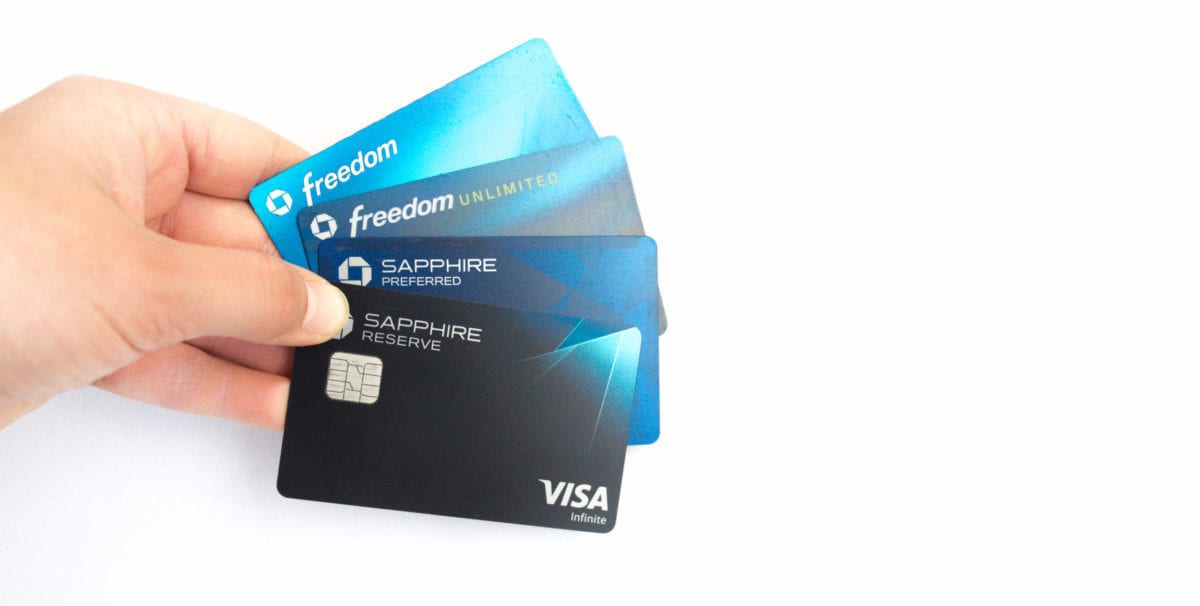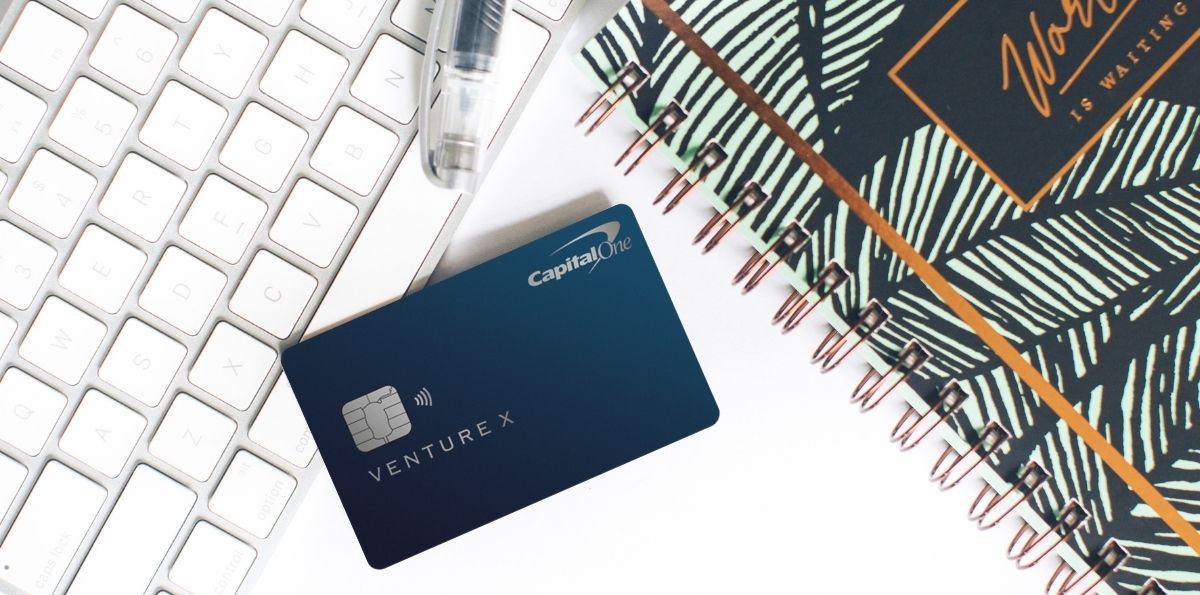Airline credit cards like the *delta skymiles gold card*, the *united explorer*, and even the Citi® / AAdvantage® Platinum Select® World Elite Mastercard® are a go-to for aspiring travelers. These cards (and most other airline cards) offer real value, with benefits like free checked luggage, priority boarding, and the occasional big welcome bonus offer.
But that doesn't mean those cards should be your go-to for everyday spending … far from it. The average traveler shouldn't be swiping one of these co-branded credit cards for each and every purchase.
It seems like a no-brainer, right? Keep earning Delta SkyMiles, United MileagePlus miles, or American Airlines AAdvantage miles, pay off your card immediately, and use those miles to travel more. The thing is, you can do much better.
More often than not, you'll be better served by using a credit card like the *chase sapphire preferred*, the *venture x*, or the *amex gold* for your everyday purchases while keeping your go-to airline credit card in the back of your wallet. Cards like these earn more points on everyday spending – with bigger bonus categories for purchases like groceries, restaurants, and even airfare – than your typical co-branded airline card. And the points they earn are far more flexible … and in the world of travel, flexibility equals value.
Keep reading to see why you need to change up your credit card strategy to travel more for less.
Related Reading: The Best Credit Card Points to Earn This Year to Fuel Your Travels
With an Airline Credit Card, You're Locked Into That Carrier
When you focus your spending on just one co-branded airline credit card, you are locked into earning and using the miles through that one airline.
Let's say you've got the *delta skymiles gold card*. Swipe your card at the grocery store and out to eat, and all of your spending will earn Delta SkyMiles.
That can be great … until you need to fly a different airline. Or when you find a great deal to book a flight that requires American AAdvantage or United MileagePlus miles. Or when you want to fly a business class seat to Europe or Asia only to find Delta charging 400,000 SkyMiles each way, while others charge a fraction of that rate.
That's when you might realize the miles you've been focused on don't have much value.
By using a credit card that earns flexible points, you keep your options open. Not only can you use your points to fly Delta, for example, but you can also use them to fly on almost any airline or even use them for hotel stays.
It's one of the main reasons we love Chase Ultimate Rewards points. You can use them to book flights on almost any airline through Chase Travel℠. You even get a bonus when using your points to book travel with your Chase card, where each point is worth up to 1.5 cents.
But that's just one of the many ways to use Chase points – and this flexibility is what makes them so valuable.
Earn More Points, Faster
Generally, when you hold a co-branded airline credit card, you will earn 2x miles per dollar spent on that airline … and maybe one or two other spending categories like restaurants or supermarkets. So, if you're not spending much money with that airline, you're probably better off charging your everyday expenses to a different card.
For example, the *chase sapphire preferred* earns bonus points on these same categories but only 2x points per dollar on travel and 3x points per dollar spent at restaurants. You can also pair either of these cards with a no-annual-fee Chase Freedom Card to earn even more on your everyday spending.
Or if you hold the *amex gold*, you'll earn 4x Membership Rewards® points per dollar at restaurants worldwide (up to $50,000 each year, then 1x) and 4x points per dollar at U.S. supermarkets (up to $25,000 each year, then 1x) and 3x points per dollar on flights booked directly with the airline and through Amex Travel. Meanwhile, the *venture x* is a great catch-all card for many expenses, as it earns an unlimited 2x Capital One miles no matter what you're purchasing.
All of these card options will provide you with a much better return on your everyday spending than simply swiping your airline credit card.
Let's say you spend $4,000 per year dining out at restaurants – charge it your Delta card, and you'd earn 8,000 SkyMiles. But if you instead pay with a (non-Delta) Amex Gold card, you'd earn 16,000 points.
Considering you could turn around and transfer those 16,000 points from the Amex to your Delta SkyMiles account, it's an easy choice which card to use.
Read more: The Best Card for Earning Delta SkyMiles is … Not a Delta Card?!
Airline Miles Lose Value Quicker
One thing is inevitable in the world of points and miles: They are only getting less valuable.
Over time, airlines and hotels will devalue their points and miles by charging more for the same redemptions. That's why we always encourage people to use their miles rather than hang on to them – that's their purpose.
And that's especially true when it comes to miles with one specific airline: They will devalue faster. Airlines can jack up rates at a moment's notice with no warning, which happens all the time. Case in point: earlier this month, Air France/KLM's mileage program Flying Blue raised award rates by 25% overnight.
So while flying from point A to point B used to cost 60,000 miles round trip, an airline can decide to begin charging 75,000 miles overnight. But with flexible points programs like Chase Ultimate Rewards, American Express Membership Rewards, and Capital One, these devaluations sting less. That's because they offer a stable of airline and hotel transfer partners and a plethora of ways to use the points. So, if there is a devaluation in one program, there are still plenty of other ways to use your miles.
Having points in flexible programs is essentially a way to hedge against the inevitable devaluations of loyalty programs.
Read more: Our Master Guide to Credit Card Transfer Partners
Flexible Points Programs Offer Transfer Bonuses
One of the best things about flexible points programs like American Express Membership Rewards, Capital One Miles, and Chase Ultimate Rewards is that they frequently offer bonus miles when you transfer your points to certain airlines or hotels.
Nearly every month, we see the banks roll out big transfer bonuses to one partner or another.
These bonuses are one of the best ways to make your points and miles go even further.
Yes, But…
Let's be clear: There are still many reasons to hold an airline credit card.
For starters, many airline credit cards offer a free checked bag just for holding the card. In most cases, you don't even need to purchase your flight with that card to get a free bag. With bags now costing at least $35 each way, that benefit alone can justify keeping an airline credit card with an annual fee of around $100.
But free bags aren't the only benefit you get these days.
Delta offers (most) co-branded cardholders a discount on award tickets with its TakeOff 15 benefit. Just for holding a Delta SkyMiles American Express Card, you'll get a 15% discount on SkyMiles award tickets on Delta-operated flights. Other airlines give cardholders a discount on in-flight food purchases, priority boarding, and other travel-related credits.
However, none of this changes the fact that these airline credit cards are rarely worth continually spending money on. If you're content with just one or two credit cards, you'll get much more value from swiping a card that earns flexible points from the likes of Chase, Capital One, and American Express.
Your favorite airline credit card is best used by opening it to earn the initial welcome bonus, then throwing it in a drawer.
Bottom Line
Airline credit cards certainly have their place. They can provide free checked luggage, shortcuts to elite status, and the occasional large welcome offer bonus. But for the average traveler, swiping a card that earns flexible points will suit you better in the long run.
You'll get a better return on your everyday spending and not lock yourself into using your points and miles with just one airline.










Thank you, I’d better start flying!
Is there any way to transfer current miles on specific airline cards to a card like Chase Sapphire?
No, unfortunately. Once airline miles live with the airline – which is the case with any specific airline co-branded card – you can’t send them elsewhere.
Great article thanks
What about AA. There are no cc transfer partners…..??
Hi Henry. Thank you! The only AA transfer partner is Bilt Rewards.
I would disagree as there are some cards that allow you to have a waiver for MQD based on credit card spend. SWA gives you a companion pass for 110k points earned
As I mentioned in the article, spending towards status on an airline card can certainly make sense. But I would argue that having status doesn’t make sense for many.
Regarding the companion pass on Southwest, it’s a great point. But you can earn the 110k from two welcome offer bonuses from credit cards. So spending beyond that would be better suited for a Sapphire Card. You could ultimately move the points into your Southwest account if you wanted.